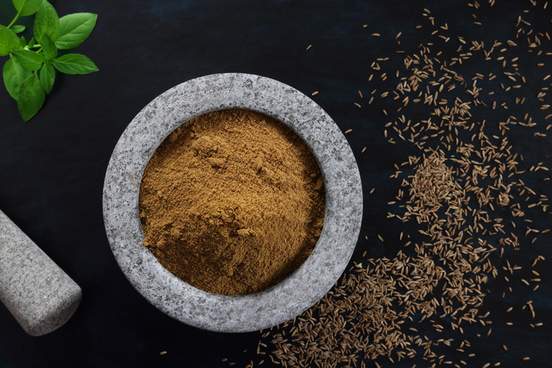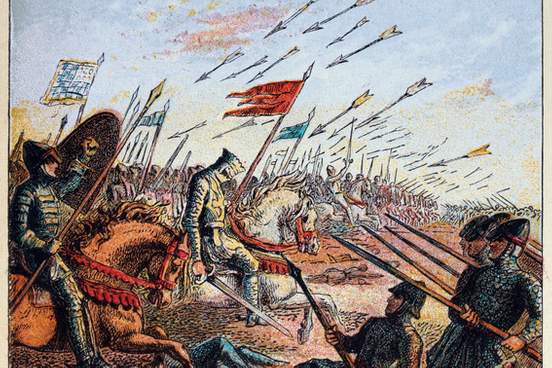
Introduction
English is famously difficult to spell. It requires those who read and write it to accept that were rhymes with her (but not with here); that toe rhymes with dough, (but not with cough); that bird rhymes with word but not with cord, and except and accept are two distinct words that can't readily be distinguished in speech.
English spelling can be largely blamed on its long, meandering journey from its Germanic infancy through its impressionable childhood of encounters with Latin, Old Norse, and Anglo-French, plus its adulthood spent raiding nearly every other language it happens to bump into. All those encounters, plus the fact that the language is more than a thousand years old and languages are simply inherently vulnerable to the vagaries of time.
One irksome upshot of all the resultant inconsistency in spelling is that spelling often isn't a reliable cue for pronunciation. Lots of words simply don't say what you'd expect them to say, given their appearance. But say them in a way other than the way radio professionals are taught and you're likely to encounter some raised eyebrows. Consider this list a tool to help those judgmental eyebrows stay low.

Pronunciation
Pronunciation: \pruh-nun-see-AY-shun\ play
English pronunciation is so bonkers that the word pronunciation itself requires some explaining. Jeez.
The noun pronunciation is closely related to the verb pronounce, but it’s missing the second “o” that’s present in the verb, and its favored pronunciation \pruh-nun-see-AY-shun\ reflects this absence. If you want to say this word the way radio professionals are trained to say it you’ll have a nun in the second syllable, not a noun.
The common alternate \pruh-noun-see-AY-shun\ is included at our entry, but it’s labeled “nonstandard,” which is your signal that if you choose to use it some people may judge you harshly (only internally, we hope).
We don’t really know why English speakers opted to make pronounce and pronunciation differ in the way they do—both come from the Latin verb pronuntiare, which of course lacks that second “o.” But it’s a pattern that’s repeated in other words; announce, denounce, and renounce all have related nouns that also lack a second “o”: annunciation, denunciation, renunciation. These are all of Middle English vintage; other noun relations (pronouncement, announcement, denouncement, renouncement) all date to the 16th century or later.
A further complication is the fact that some people use the same pronunciation for ant, the bug, and aunt, a parent’s sibling or spouse of a sibling.
— Roger Branch, The Statesboro (Georgia) Herald, 14 Oct. 2022

Miniature
Pronunciation: \MIN-ee-uh-choor\ play OR \MIN-uh-choor\ play (and MORE)
You can consider the “i” in miniature or ignore it if you prefer—either pronunciation is fully accepted as standard. You also have multiple perfectly respectable options for the last syllable: maybe you like it to sound like chore, or perhaps you prefer it like the cher in teacher; or perhaps you like it to start with \t\ but rhyme with pure, or instead, to sound like tour. Your dictionary catalogs all of these pronunciations for your consideration.
The ultimate origin of miniature is the Latin word minium, meaning “red lead.” The story of how color became size is here.
The oaks shook off long tresses of their mossy beards to the tugging of the wind, and the bayou in its ambition put on miniature waves in mocking of much larger bodies of water.
— Mark Twain, Life on the Mississippi, 1883

Intuit
Pronunciation: \in-TOO-it\ play
No one could be blamed for seeing intuit and thinking that the thing after in must surely sound like fruit and suit and pursuit. Or, if can’t be pronounced like those then it must be like biscuit and circuit, right? Or perhaps like suite? Nope. Intuit sounds like the phrase “into it” but with the emphasis placed on to: \in-TOO-it\.
The word is a mid-19th century creation coined two and a half centuries after the noun it’s based on—intuition—was first used. If you intuit something, you know, sense, or understand it by intuition and not because of evidence.
What to wear to Le Rock, perhaps the buzziest of a collection of buzzy new restaurants in Rockefeller Center? On a recent Friday night, my dinner companion settled on a canvas jacket somewhere between a blazer and a chore coat. Upon arrival, it became apparent that he had correctly intuited the dress code—of the waitstaff, at least, each of whom wore a garment almost identical to his.
— Hannah Goldfield, The New Yorker, 14 Oct. 2022

Asterisk
Pronunciation: \AST-uh-risk\ play
People have a tendency to pronounce this word—especially in its plural form—as though it ends in an “x” but its last syllable is just like the word risk. For cases in which you’ve got ** or a whole slew of them, the last syllable will be risks, with all the awkward sk-ings also required for that word.
Asterisk comes ultimately from Greek asteriskos, meaning literally, “little star.”
The typographer Robert Bringhurst goes so far as to declare that the asterisk is a staggering five thousand years old, which would make it … by far the oldest mark of punctuation of any stripe.
— Keith Houston, Shady Characters, 2013

Acai
Pronunciation: \ah-sah-EE\ or \ah-sye-EE\ play
This famous berry is harvested in Brazil, but it’s featured on menus and in recipes read by English speakers aplenty. Even if you’re not throwing it into your morning smoothie, you might want to be sure you’re saying acai right: it’s \ah-sah-EE\ or \ah-sye-EE\, with the emphasis on that last syllable, like in the name Marie.
The word doesn’t look like an English word—it’s even sometimes shown with a very un-English cedilla (aka a little tail) on its “c”: açai. Its spelling is testament to its origin: Brazilian Portuguese, and ultimately Tupi.
Fueled by claims of extraordinary health benefits, slick marketing and influential promoters, açaí has in recent years become one of the trendiest foods in the world. Pitted and pulped, the fruit is the deep-purple fixture of smoothies most everywhere. It has become especially popular in the United States, the largest açaí consumer outside of Brazil, where it’s a viral star on Instagram and celebrated by health and wellness enthusiasts.
— Terrence McCoy, The Washington Post, 28 Nov. 2021

Jewelry
Pronunciation: \JOO-ul-ree\ or \JOOL-ree\ play
Your jewelry may or may not be festooned with jewels, but thinking of the word jewel may help you say jewelry in the way that’s generally favored, as \JOO-ul-ree\ or \JOOL-ree. (The not-favored way rhymes with foolery.)
When jewel was first used in the 13th century it referred to an object that had intrinsic value and was used for adornment—not so different from today’s meaning, but in Shakespeare’s Twelfth Night it refers specifically to a little picture of Olivia. The word comes from an Anglo-French word that was a diminutive of ju or jeu, meaning “game, play,” from Latin jocus meaning “game, joke.”
Jewelry is often the last thing you put on before you walk out the door (besides perhaps a last spritz of perfume). The addition of a stack of rings, a collection of chunky necklaces, or even a pair of look-at-me earrings can cement the vibe you're going for on any given day, without the need for much more accessorizing.
— Aemilia Madden, Harper’s Bazaar, 26 Sept. 2022

Utmost
Pronunciation: \UT-mohst\ play
Something of the utmost urgency or importance is more urgent or important than just about anything else. And if you do your utmost to help someone, you do all that you can. The first syllable of the word is always \UT\, never \UP\.
Utmost is as ancient as the language itself. It comes from the Old English ūtmest, which was first used to refer to a most remote point or location.
Sun safety should always be of the utmost importance to keep your skin protected, but particularly in the hottest, sunniest days of summer.
— Emma Seymour, Good Housekeeping, 8 July 2022

Cumin
Pronunciation: \KUM-in\ play or \KYOO-min\ play or \KOO-min\ play
The name of the spice known as cumin has three fully accepted pronunciations, so even if you have your own personal favorite, chances are that the ones that irk you are also established and perfectly fine.
There is a fish called snook. Very traditional, cooked over coals with soy sauce, apricot jam and Worcester sauce, and then cumin, coriander seeds, and a bit of turmeric. You make a mix of those and brush it over the fish and put it over the coals. It can go onto rice.
— Reuben Riffel, interview in The Smithsonian, 9 Feb. 2017

Inchoate
Pronunciation: \in-KOH-ut\ or \IN-kuh-wayt\ play
Inchoate is a formal word that is most often used to describe something that is not, or not yet, completely formed or developed. It’s a 16th century Latin borrowing that can add some pizzazz to your conversation—but only if you pronounce it correctly.
The first two letters of inchoate do what you’d expect—exactly what the word in does—but “choate” does not share the first sound of chair, nor does it rhyme with oat. Instead, it shares the first sound of cat, and in its more common accepted pronunciation rhymes with poet. We bear no responsibility for these facts but apologize nonetheless—it really is beastly.
Making a narrative out of the inchoate past inevitably entails selection—and perhaps some level of deception.
— Sarah Resnick, The New Yorker, 9 Mar. 2020

Candidate
Pronunciation: \KAN-duh-dayt\ or \KAN-duh-dut\ or \KA-nuh-dayt\ or \KA-nuh-dut\ play
Candidate has multiple accepted pronunciations. You can make the first “d” audible or not; you can make the third syllable sound like date or like the second part of credit and edit.
The word comes from Latin candidatus, meaning “clothed in white,” from the white togas worn by candidates for office in ancient Rome.
Applying for any type of loan generally requires a credit check to determine if the borrower is a qualified candidate.
— Melanie Lockert, Fortune, 10 Oct. 2022

Cavalry
Pronunciation: \ play
The preferred pronunciation of cavalry—that’s the word that refers to soldiers, or something likened to them—has a first syllable that matches cavern, cavity, and cavalier.
But cavalry is so frequently pronounced like the similar-looking calvary that we include that word’s pronunciation as a nonstandard pronunciation of it. (Reminder: calvary refers to a depiction of the crucifixion or to an experience of intense suffering. For more on this pair read this.
Bernheimer’s Fayette Street store had a fourth-floor restaurant, a commercial bakery and other traditional department appointments. Its basement had a complete meat and grocery department. The basement was also the place where the store once sold surplus ex-U.S. Army horses from World War I. The cavalry chargers wound up on Baltimore and Anne Arundel County farms.
— Jacques Kelly, The Baltimore Sun, 4 June 2022

Realtor
Pronunciation: \REE-ul-ter\ or \REE-ul-tor\ play
Realtor tends to invite an extra syllable between the “l” and the “t— \REE-luh-ter\—but many people object to that insertion. To avoid their criticism, we advise that you refer to a qualifying person who helps folks buy and sell property as a \REE-ul-ter.
Pronunciation isn’t the only tricky thing about this word. The other is that it’s capitalized: the word is a “collective mark”—a kind of trademark, but one that relates not to a product but to a group of people. Realtor is used for a real estate agent who is a member of the National Association of Realtors.
The cost of making a big move without professional help may be much more expensive than paying a professional with expertise. Experience as a Realtor and knowledge of the market are key. … Some specialize in specific types of properties. Some Realtors only work for sellers or only for buyers and some will work with either.
— Linda Leitz, The Gazette (Colorado Springs, Colorado), 16 Oct. 2022

Height
Pronunciation: \HIGHT\ play
Height ends in a “t” but some people pronounce it as though it ends in “th.” This alternate (but often criticized) pronunciation is both consistent with the pronunciation of other measurement words, like length, width, and breadth, and historically justified: like those others, height used to commonly be spelled with a “th” at the end. Read the full story of the word and its forms here.
The water willow, Salix Purshiana, when it is of large size and entire, is the most graceful and ethereal of our trees. Its masses of light green foliage, piled one upon another to the height of twenty or thirty feet, seemed to float on the surface of the water, while the slight gray stems and the shore were hardly visible between them.
— Henry David Thoreau, A Week on the Concord and Merrimack Rivers, 1849

Chalet
Pronunciation: \sha-LAY\ play
A chalet is a style of house from and firmly associated with the Swiss Alps. It has a big roof that hangs over the front and sides, which ostensibly protects dwellers from snow unceremoniously plopping down upon their heads. The word chalet comes from one of Switzerland’s four official languages—French—and accordingly has a pronunciation in which its final consonant is entirely silent. Instead of sounding like shallot, it rhymes with ballet.
(Switzerland’s other official languages are German, Italian, and Romansh.)
[T]he view that will always remain in my mind is when the train made its final pass through a long tunnel—and Lake Geneva emerged in all its glory. … The azure blue water of the crescent-shaped lake, surrounded by cragged Alpine peaks, sparkled in the afternoon sun. The train rolled past colorful villages, medieval towers, grand chalets and wooden farmhouses. Miles of terraced vineyards cascaded down steep slopes to the lake's shore.
— Joanne DiBona, The San Diego Union-Tribune, 10 Sept. 2017

Nuptial
Pronunciation: \NUP-shul\ or \NUP-chul\ play
Nuptial describes marriage or a wedding ceremony in its adjective form (“nuptial bliss,” “nuptial vows”), and refers directly to such in its (usually plural) noun form: “planning for their upcoming nuptials.” In all cases, the favored pronunciation is \NUP-shul\ or \NUP-chul\.
Nuptial is Latin in origin, coming ultimately from nubere, meaning “to marry.” (That Latin root is also the source of the rather formal adjective connubial (meaning “of or relating to the married state,” as in “connubial relations”).)
Yes, some may find in [“Guys and Dolls”] a musical minted in 1950 some old-timey caricature of both male seduction and female worship of the nuptial altar. But this is, after all, a show based on stories about the city’s flavorful underworld by Damon Runyon, a New York newspaperman who died in 1946.
— Peter Marks, The Washington Post, 10 Oct. 2022

Macaron
Pronunciation: \mah-kuh-ROHN\ play
English has two words for cookies that come from the same French word—macaron—which itself traces back to the same Italian source word as macaroni. Macaroon was borrowed from French in the early 17th century and primarily refers to a small mounded coconut or almond cookie—no wafers, just a mound. That one is pronounced \mak-uh-ROON\ play . Macaron is a much newer addition to English (current evidence dates its appearance in the language to the early 1990s) that refers to a light and often brightly colored sandwich cookie. Its pronunciation reflects the single “o” of its spelling \mah-kuh-ROHN\ play .
HOWEVER: sometimes the sandwich cookie is referred to with the older, double “o” word.
The upshot of all this is that you can call a macaron a “macaroon,” and your dictionary has got your back because there’s plenty of evidence of English speakers doing likewise, and on purpose. Or, you can make a distinction between the two confections, and save the French-er sounding word for the fancier one.
... [A] macaron consists of two meringue-based cookies sandwiched together with a filling. The delicate cookies, with their smooth tops and ruffled skirts, are often tinted with vibrant food coloring, and they come in an array of flavors, from raspberry to pistachio to chocolate to foie gras. A good macaron is uniformly light and airy with a delicate sugary crunch. … [Macaroons] are denser, chewier, and certainly easier to make. These mounded cookies are most often made with sweetened shredded coconut and, if you’re lucky, they’re dipped in chocolate. Some recipes do feature almonds, but the nuts tend to be in larger pieces—not finely ground as they are in macarons—or in the form of paste. Macaroons have a craggy surface, a chewy texture, and while tourists likely don’t spend $30 on a six-pack for an Instagram post, I love them just the same.
— Kate Kassin, Bon Appetit, 15 Apr. 2022

Escape
Pronunciation: \ih-SKAYP\ or \eh-SKAYP\ play
Escape starts off like escalator and escort, but it’s sometimes pronounced as though it starts like excavate and exclude. (Our entry for the word includes this alternate pronunciation and labels it “dialectal.”)
The alternate pronunciation actually reflects the word’s history: it comes from the Latin prefix ex-, meaning “out of,” and Late Latin cappa, meaning “head covering, cloak.”
I took my hat, and after a four miles' walk, arrived at Heathcliff's garden gate just in time to escape the first feathery flakes of a snow-shower.
— Emily Brontë, Wuthering Heights, 1847

Omnipotent
Pronunciation: \ahm-NIP-uh-tunt\ play
Omnipotent is most often used to describe one who has complete or unlimited power. While it looks like it should be pronounced as a simple combining of omni- and potent, with the first syllable of each part getting the emphasis, in fact it’s the second syllable of omni- that gets all the force: \ahm-NIP-uh-tunt\.
I was ready to admit that the best of men might fail. I meant still to be captain of my soul, but I realized that even captains are not omnipotent in uncharted and angry seas.
— W.E.B. Du Bois, Darkwater: Voices from Within the Veil, 1920





